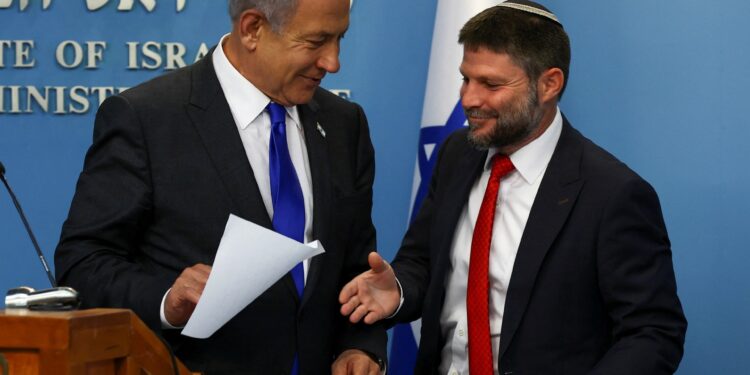Israel is witnessing an escalation in the political and economic controversy with the approaching vote on the budget of 2025, as official documents revealed a significant increase in the budgets of ministries and non -essential government offices, which sparked widespread criticism from the opposition.
According to a report published by the Israeli newspaper Calcalist, the allocations for these ministries and offices increased by 709 million shekels (about 194 million dollars), compared to the budget approved in the first reading in January 2025.
The documents, issued by the Israeli Ministry of Finance to the Knesset Finance Committee, show that these increases include funds from the public budget, in addition to allocations for coalition funds, which amount to more than 5 billion shekels ($ 1.37 billion).
Large budgets for ministries
One of the most prominent examples of these increases – according to Calist – is the budget of the Ministry of Settlement, which is headed by Urit Stroke of the Religious Zionism Party, where it jumped from 123 million shekels (about 33.6 million dollars) in the first reading to 391 million shekels (106.7 million dollars), a huge increase of 268 million shekels (73.1 million dollars), an increase of 320%.
https://www.youtube.com/watch?v=arcn5jfgi4
The Ministry of Heritage, from which Minister Amihai Eliao of the Autasma party, has also witnessed an increase in its budget from 71 million shekels (19.4 million dollars) to 77.9 million shekels (21.3 million dollars). This increase includes 6 million shekels ($ 1.6 million) in direct spending, in addition to 6 million shekels in the framework of allowing future financial obligations.
And in the Ministry of Bodies and Traditions, led by Meir Porosh of the Jewatot Party, Hatura, the budget increased from 28 million shekels (7.7 million dollars) to 118 million shekels (32.2 million dollars), an increase of 90 million shekels (24.5 million dollars) in direct spending, in addition to 40 million shekels (10.9 million dollars) in future obligations, which represents an increase of 420%, compared to the original budget Related to the first reading.
Hadist criticism from the opposition
The big increases in spending sparked the anger of the opposition, as Representative Naamah Lazimi from the Labor Party criticized the budget, and described it as “theft in broad daylight”, noting that the government is working to “satisfy politically close to citizens who work and perform military service.”
“This budget is the most cruelty in terms of imposing financial burdens on the people, but at the same time it is the dream budget for the ruling coalition. They only destroy the future of our children to ensure their political survival,” Lazimi added.
Decisive vote
The Knesset is scheduled to start its discussions on the budget bill next Monday, with the second and third reading vote on 25 or 26 March, and expectations indicate that the ruling coalition will ensure the budget pass, given that the failure of its pass will lead to the dissolution of the Knesset and the holding of new elections, a scenario that the coalition seeks to avoid at any cost.
Analysts believe that the great financial expansion in some ministries, especially those that follow parties in the ruling coalition, may lead to a financial crisis, especially with the increasing economic pressures and slowdown in the growth suffered by Israel.
At a time when the country faces major financial challenges, attention is directed at the final vote in the Knesset, as it will determine the course of economic policy for the next year, in light of increasing criticism on wasting public money to serve political interests at the expense of the national economy.



